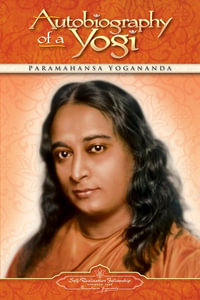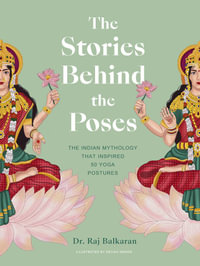Today the Kumbh Mela in Allahabad, India, is a major Hindu religious pilgrimage and the largest religious gathering in the world. In 2001, according to the government of Uttar Pradesh, 30 million pilgrims were drawn to the confluence of the rivers Ganga and Yamuna on the most auspicious day for bathing. In an impressive feat of organization and administration, the first mela of the new millennium was managed to the overwhelming satisfaction of most, with an impressive health and safety record. The loudest complaint had to do with the intrusive presence of the media. Journalists, largely representing foreign media outlets, had swarmed to the mela, intent on broadcasting to a global audience sensational images of naked (or wet-sari-clad) Indians taking part in "ancient" religious rituals.
Resistance to foreign interference with the mela has roots that go back 200 years. The British colonial state and the colonized had different ideas about what the Kumbh Mela represented: for the former, it was a potentially dangerous gathering that demanded tight regulation and control, but for the latter it was a sacred sphere in which foreign domination and interference were intolerable. In this book Kama Maclean examines this tension and the manner in which it was negotiated by each side. She asks why and how the colonial state tried to manipulate the mela and, more important, how the mela changed as Indians responded to the colonial power. In recent years many scholars have emphasized the extent to which the Kumbh Mela has been monopolized by the Hindu nationalist movement. Maclean seeks to situate the history of the Kumbh Mela in Allahabad within a much broader context. She explores the role of a pilgrimage fair like the Kumbh Mela in disseminating ideas, particularly political
ones like nationalism and ideas about social reform.
Kama Maclean tells the mesmerizing and important story of the Kumbh Mela with exciting detail as well as careful scholarly attention, illuminating for the reader the full scope of the event's historical and socio-political context.
Industry Reviews
"Kama Maclean provides a nuanced and, at times, revolutionary understanding of what must be regarded as one of the most important periodic gatherings of humanity not just in India, but in the world. As such, she reveals an enormous amount about the modern history of Hinduism. But in the process she shines new light on the social and cultural history of British imperialism and Indian nationalism. Her book is the result of painstaking, careful research; she draws
on the insights of a wide range of historians, from C.A. Bayly to Dipesh Chakrabarty, but her voice remains clearly her own." --William R. Pinch, Professor of History, Wesleyan University
"Pilgrimage and Power explains for the first time how colonial rule created conditions that helped transform a local religious fair in India -- the Kumbh Mela -- into a major event on the national calendar. Maclean combines assiduous archival research and anthropological insights to produce a remarkable analysis of the cultural politics of Indian nationalism both during and after British rule. This is an impressive and significant contribution to South
Asian Studies." --Dipesh Chakrabarty, author of Habitations of Modernity: Essays in the Wake of Subaltern Studies
"Carefully researched and engagingly written, Kama Maclean's study of the Kumbh Mela places this fascinating cultural phenomenon in its historical and socio-political contexts, with illuminating results. Like an adept panda, or pilgrim guide, Dr. Maclean steers readers through the journalistic, promotional, and Orientalist hype that still regularly engulfs the vast duodecennial bathing fair, and then sensitively reveals and interrogates the confluence
of actors, agendas, and events that shaped it during the Colonial and post-Independence periods. Through her spadework and insights, the Mela becomes a lens by which such important issues as the interplay of
indigenous and foreign interests in the shaping of modern India, its political elite, and a new, more homogenous form of Hinduism, are seen with new clarity." --Philip Lutgendorf, author of Hanuman's Tale: The Messages of a Divine Monkey
"Kama Maclean provides a nuanced and, at times, revolutionary understanding of what must be regarded as one of the most important periodic gatherings of humanity not just in India, but in the world. As such, she reveals an enormous amount about the modern history of Hinduism. But in the process she shines new light on the social and cultural history of British imperialism and Indian nationalism. Her book is the result of painstaking, careful research; she draws
on the insights of a wide range of historians, from C.A. Bayly to Dipesh Chakrabarty, but her voice remains clearly her own." --William R. Pinch, Professor of History, Wesleyan University
"Pilgrimage and Power explains for the first time how colonial rule created conditions that helped transform a local religious fair in India -- the Kumbh Mela -- into a major event on the national calendar. Maclean combines assiduous archival research and anthropological insights to produce a remarkable analysis of the cultural politics of Indian nationalism both during and after British rule. This is an impressive and significant contribution to South
Asian Studies." --Dipesh Chakrabarty, author of Habitations of Modernity: Essays in the Wake of Subaltern Studies
"Carefully researched and engagingly written, Kama Maclean's study of the Kumbh Mela places this fascinating cultural phenomenon in its historical and socio-political contexts, with illuminating results. Like an adept panda, or pilgrim guide, Dr. Maclean steers readers through the journalistic, promotional, and Orientalist hype that still regularly engulfs the vast duodecennial bathing fair, and then sensitively reveals and interrogates the confluence
of actors, agendas, and events that shaped it during the Colonial and post-Independence periods. Through her spadework and insights, the Mela becomes a lens by which such important issues as the interplay of
indigenous and foreign interests in the shaping of modern India, its political elite, and a new, more homogenous form of Hinduism, are seen with new clarity." --Philip Lutgendorf, author of Hanuman's Tale: The Messages of a Divine Monkey
"This book is a dazzling account of the evolution of the modern Kumbha Mela in Allahabad. The study exemplifies empirical narrative history, engaging, to some extent, the anthropology of pilgrimage and postcolonial theory about religion, politics, and the colonial state. . . For those interested in postcolonial theory, Maclean's book is a treasure of illustrations, and for those who like their historiography empirically rich and narratively coherent, this book
will delight."
--I
roject Muse

























